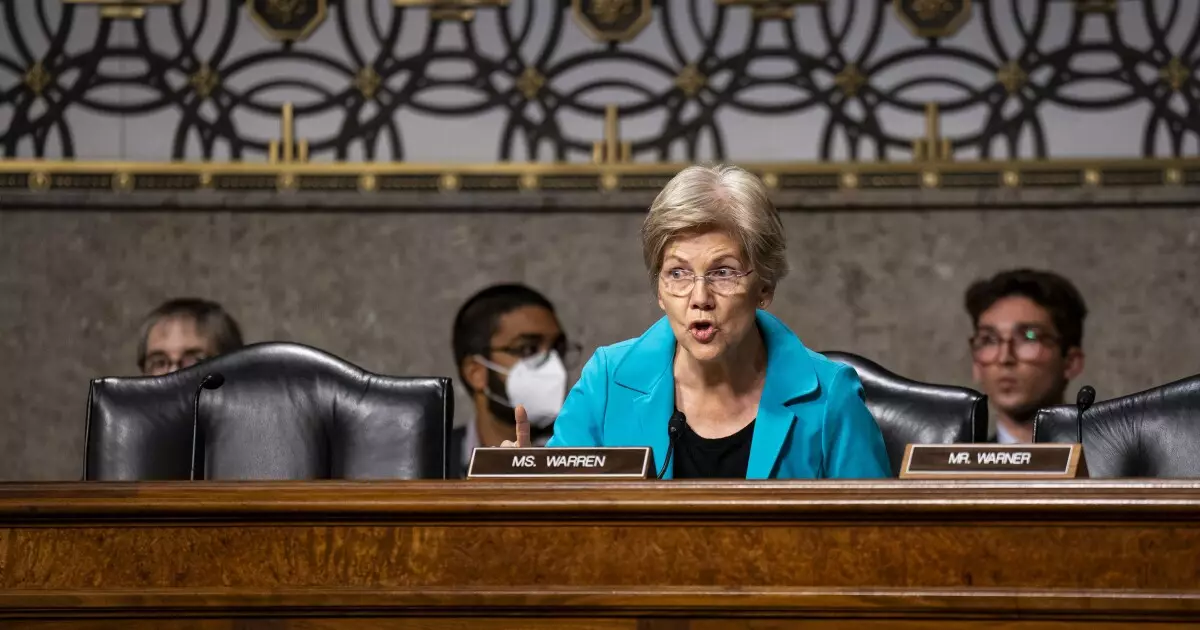The ongoing discussions about tax policy in the United States represent a critical juncture, especially as key governmental shifts are set to occur with Republicans assuming a stronger position in Congress. At the forefront of this debate is incoming Senate Banking Committee Ranking Member, Senator Elizabeth Warren, who has leveled stark criticisms against the 2017 Tax Cuts and Jobs Act (TCJA) and has indicated that any potential extension of its provisions would entail greater fiscal irresponsibility. Warren’s condemnation characterizes the TCJA as a significant policy misstep that greatly favored wealthy individuals and corporations at the expense of broader fiscal equity and responsibility.
During a recent subcommittee hearing focusing on Economic Policy, Warren raised alarms about what she termed a “sequel” to the TCJA, suggesting that further tax cuts would exacerbate existing inequities and deepen the fiscal challenges faced by average Americans. This standoff marks a critical point of contention as Democrats prepare to confront Republicans’ anticipated budget proposals which may focus on extending or making permanent the expiring provisions of the TCJA.
Warren emphasized the staggering financial implications of the Republican plan, projecting a potential cost between $4.5 trillion to $5 trillion from 2025 to 2034. These figures, drawn from analyses by the Congressional Budget Office and Joint Committee on Taxation, illustrate the burden such extensions could inflict upon the national budget and by extension, the taxpayer. The argument raised by Warren is not solely about the immediate financial implications but rather about the longer-term effects on income inequality and the accessibility of essential public services.
With the specter of deficits looming large over these discussions, it’s crucial to consider how lawmakers will navigate the reconciliation process, which permits budget-related legislation to advance with a simple majority. This path could provide Republicans with a means to implement their agenda without the traditional roadblocks of bipartisan agreement. However, Warren’s critique aligns with a broader narrative that questions the morality of additional tax giveaways to wealthy donors while potentially exacerbating financial strain on middle- and lower-income families.
Another component of this tax policy discourse involves the potential ramifications for the municipal bond market—an essential funding source for local governments and critical infrastructure projects. Concerns about trimming or even eliminating the tax-exemption on municipal bonds are pervasive, mainly due to the anticipated need for financial resources to cover the costs associated with TCJA extensions. The implications of such cuts could severely hinder local governments’ abilities to finance projects that benefit their communities, thereby impacting countless citizens directly.
The message from the Democrats regarding tax fairness is clear: any discussions about tax policy going forward must consider the broader implications for public welfare and economic stability.
As Senator Warren prepares to ascend to a leading role on the Senate Banking Committee, her opposition to the proposed extensions will likely become increasingly vocal and organized. Empowered by her new position, she is poised to challenge the Republican narrative surrounding these tax cuts and advocate for a more equitable tax system that prioritizes the needs of everyday Americans over those of billionaires and special interests.
Furthermore, the political landscape is expected to shift rapidly as GOP leaders, such as House Majority Leader Steve Scalise, outline aggressive agendas that may unveil significant changes to tax policy, especially within the first 100 days of the new session of Congress. This period will likely witness frantic negotiations, as both parties stake out their positions ahead of key budget reconciliation votes.
The impending tax policy debates signify more than mere fiscal adjustments; they reflect deep-rooted ideological clashes and ethical considerations about the role of government in promoting economic fairness. As discussions unfold, it is imperative that both sides transparently present their rationale and remain mindful of the broader societal implications of their legislative endeavors.

